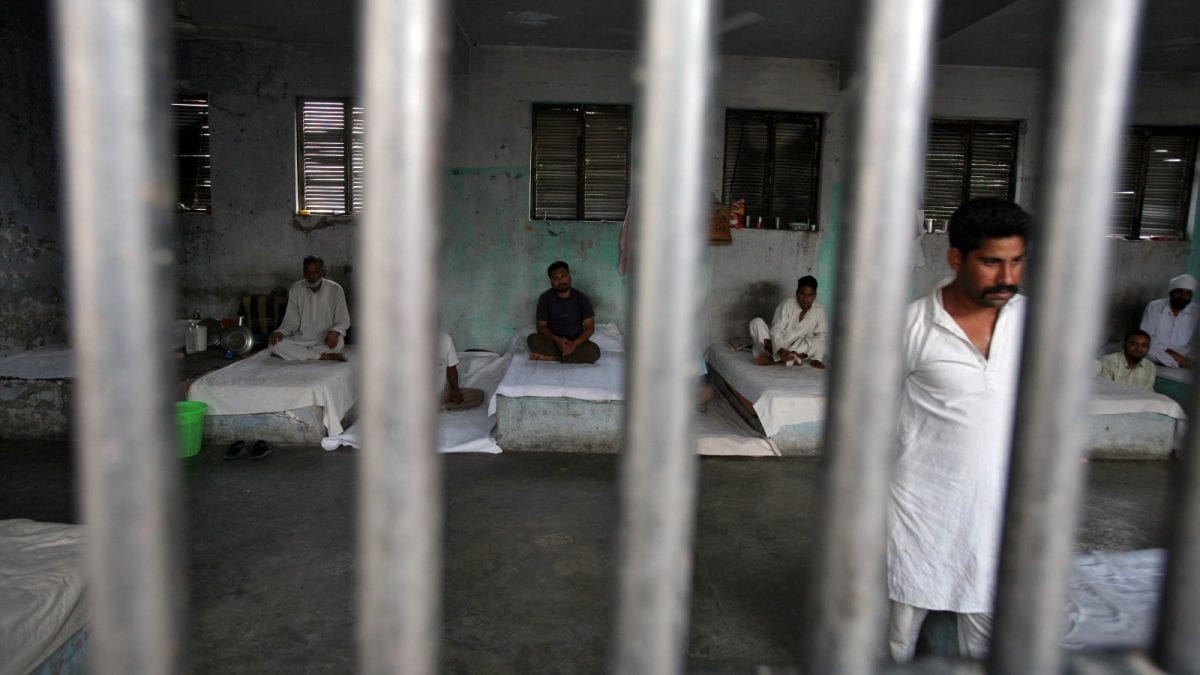Last Updated:
This mandate follows the central government’s Immigration and Foreigners (Exemption) Order, 2025, as stated in the gazette notification issued on Tuesday

State and union territory authorities must detain these foreigners until they are deported, as per the ministry of home affairs order. (Representational image/Reuters)
Recommended Stories
States and union territories are now required to establish detention centres for foreigners denied entry to India. The Bureau of Immigration will maintain a specific list of foreigners who are not permitted in India.
This mandate follows the central government’s Immigration and Foreigners (Exemption) Order, 2025, as stated in the gazette notification issued on Tuesday. The notification reads, “In exercise of the powers conferred by section 33 of the Immigration and Foreigners Act, 2025 (13 of 2025), and in supersession of the Registration of Foreigners (Exemption) Order, 1957 and the Immigration (Carriers’ Liability) Order, 2007, except as respects things done or omitted to be done before such supersession, the Central Government hereby makes the following order, namely: the Immigration and Foreigners (Exemption) Order, 2025.”
State and union territory authorities must detain these foreigners until they are deported, as per the ministry of home affairs order.
Key provisions include restrictions on foreigners convicted of serious charges such as anti-national activities, espionage, rape, murder, terrorist acts, child trafficking, or membership in a banned organisation.
Foreigners involved in trafficking narcotics and psychotropic substances, human trafficking, including child trafficking, racketeering in fake travel documents and currency (including cryptocurrency), cybercrime, or child abuse will be barred from entry into India, according to the new rules.
Foreign nationals may be denied entry to India, and carriers are obligated to return these individuals to their country of origin. Provisions of sections 17 and 18 of the Act and rules 22, 24, and 25 of the rules do not apply to carriers transporting passengers and crew by rail or road into or from India. Section 19 of the Act does not apply to carriers transporting passengers with forged documents if forgery cannot be detected without document examination experts, stowaway passengers that the carrier is ready to take back, passengers arriving on diverted aircraft or ships, foreigners exempted from passport or visa requirements, and foreigners availing Temporary Landing Permits at immigration posts.
Designated agencies are authorised to impose restrictions on the movement of apprehended illegal immigrants in holding centres or camps pending deportation.
Designated border guarding forces like the BSF or the Coast Guard will prevent illegal immigrants from entering India by capturing their biometric information and demographic details on the central government’s portal.
Every foreigner applying for any category of visa, including registration as an Overseas Citizen of India, must consent to provide biometric information to the visa/OCI authority.
Foreign nationals cannot be employed in the power, water, and petroleum sectors, as per the new order. Those coming for mountaineering expeditions will need specific permission.
Exemptions are granted to members of India’s Naval, Military, or Air Forces entering or exiting India on duty, and their accompanying family members on government transport. Indian citizens entering by land or air over the Nepalese or Bhutanese frontier are exempt, as are citizens of Nepal and Bhutan holding valid passports and not arriving from China, Macau, Hong Kong, or Pakistan. Tibetans in India and those with registration certificates are also exempt.
The notification further states that provisions of sub-sections (1), (2), and (3) of section 3 of the Immigration and Foreigners Act, 2025, do not apply to registered Sri Lankan Tamil nationals who took shelter in India up to 9th January, 2015. Provisions of sub-sections (2) and (3) of section 3 of the Act and rule 9 of the rules regarding visa requirements do not apply to foreigners holding diplomatic and official passports where visa requirements are waived under intergovernmental agreements, foreigners from specified countries intending to avail visa-on-arrival at designated ports of entry, and foreign military personnel visiting India on naval warships for multilateral exercises, goodwill visits, bunkering of vessels, and assistance during natural calamities, unless exempted or notified by intergovernmental agreements or by the central government.
About the Author

Arunima is Editor (Home Affairs) and covers strategic, security and political affairs. From the Ukraine-Russia War to the India-China stand-off in Ladakh to India-Pak clashes, she has reported from ground zero …Read More
Arunima is Editor (Home Affairs) and covers strategic, security and political affairs. From the Ukraine-Russia War to the India-China stand-off in Ladakh to India-Pak clashes, she has reported from ground zero … Read More
Loading comments…
Read More




